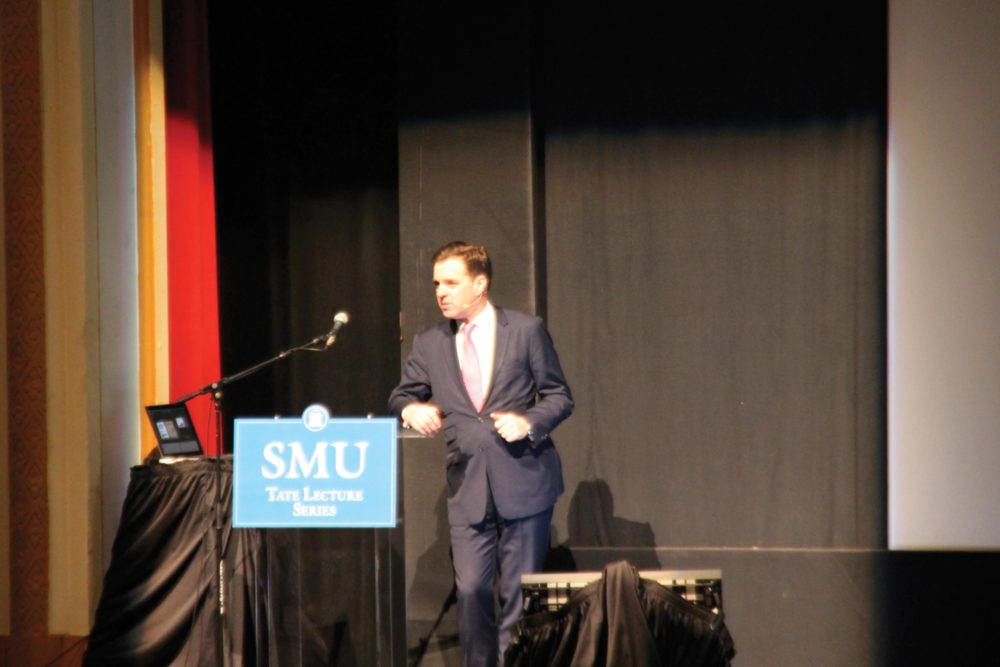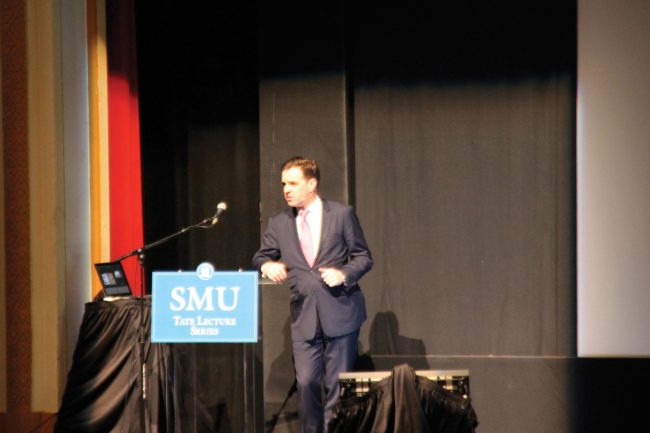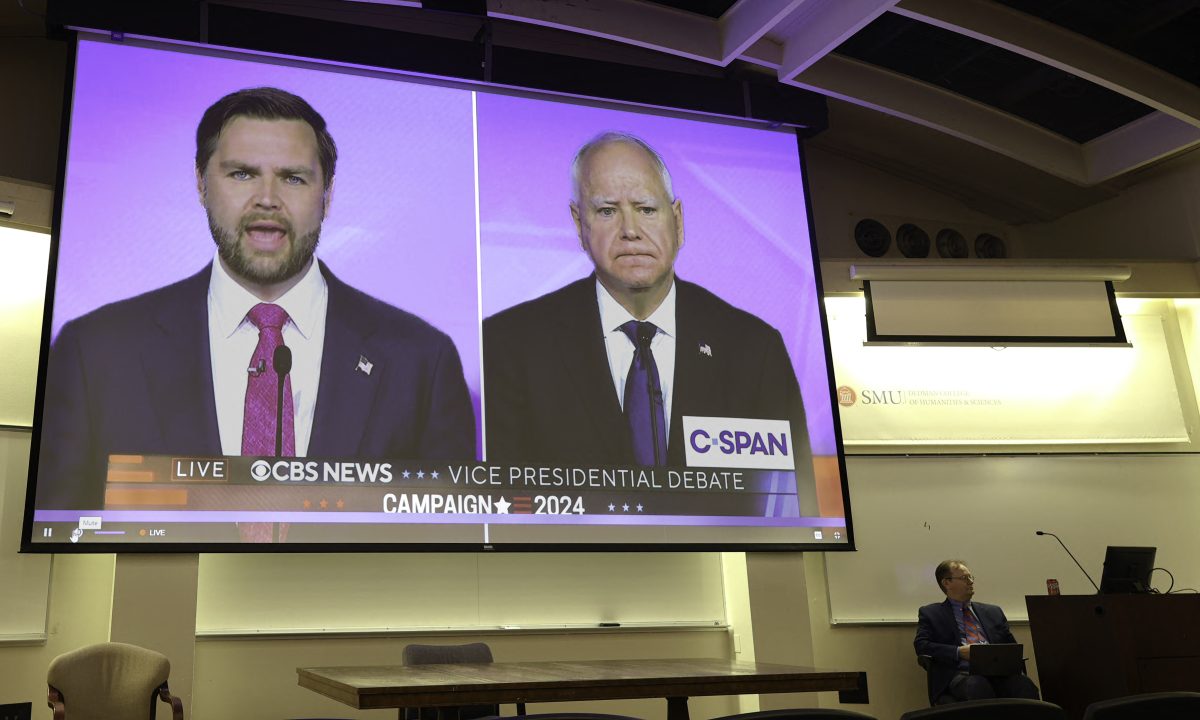
Niall Ferguson, a professor of history at Harvard University, spoke at the Tate Lecture Series Tuesday in McFarlin Auditorium. (Christopher Saul / The Daily Campus)
Renowned historian Niall Ferguson told a full McFarlin Auditorium about the looming institutional deterioration of America.
While many point to America’s fiscal deficits and growing debt as indicators of its downfall, Ferguson has a different theory.
“The deficits are just symptoms of the financial crisis,” Ferguson said.
According to Ferguson, the deficits are merely the result of an issue that needs to be addressed for any hope of growth and improvement in the American economy.
While many have written on how poor countries become rich through economic development, Ferguson said the problem with the United States is facing - a fall from rich to poor – is rarely tackled.
“Much less has been written on how rich countries can become poor by letting their institutions deteriorate,” Ferguson said.
He introduced what he believes are the four forms of institutional degeneration that the U.S. suffers from: the breakdown of contact between generations, the growing complexity of regulation, the rules of lawyers holding merit over the rules of law and the overall decline of civil society.
“In each of these four dimensions we have problems,” Ferguson said. “But they are flexible-our problems are man-made.”
Beginning with the generational imbalance, Ferguson said the main problem are the fact that “taxes and benefits today are the same as the taxes and benefits of the next generation of Americans.”
“The present generation of America is living to a frightening degree at the expense of future generations,” Ferguson said.
As America continues to age, this problem will only grow.
Generational inequality is the central problem of our times, Ferguson said. “The problem gets worse the longer you leave it.”
But with the only sure-fire, immediate solution meaning extreme and unrealistic tax increases or government spending cuts, there is no safe way to stop the entitlement-caused budgetary problems the nation has.
He said that generation imbalance can ultimately be linked back to the other main problem -what Ferguson refers to as excessive regulation.
“What’s going on is regulation is becoming ever more complicated,” he said.
“There are only 21 countries in the entire world where it has gotten harder to do business in the past seven years.”
The United States is on the list.
“It is harder to start a business in New England than it is in Old England,” Ferguson said.
He named the country’s complex tax code as the main culprit that just keeps growing.
“It has allowed the legal regulation complex to grow,” Ferguson said.
This issue then leads into Ferguson’s theory that the lawyer is now greater than the law. Nearly every business attempting to start requires a lawyer’s counsel.
“The United States is underperforming, its court of law is not the [best].”
Ferguson was quick to clarify, however, that he was not placing blame on lawyers alone.
“I want to blame it on our entire society,” he said.
The overall decline of civil society is responsible for America’s decline, Ferguson said.
While the U.S. was once admired and revered for the willingness and efficiency of the American people addressing their societal problems first hand, civil society has lost its problem solving ability.
Ferguson said this has been caused by growth in entitlements and entitlement spending, which is a product of America’s political environment.
“The surest way to kill off voluntary association and self-help is to create a welfare state,”Ferguson said.
He explained that America slowly but surely has gone “from being a warfare state to being a welfare state.”
Past what some may have considered harsh-but necessary-words, Ferguson ended on an optimistic note.
The U.S. has benefited from four growth corridors in recent years.
It is in these American regions that jobs are being created and income is growing, he said.
Texas led the list of growth regions.
What is standing in the way of these corridors expanding across the nation? Ferguson said that the problem lies in our nation’s capitol.
“Ultimately, Washington has far more power today than the Founders envisioned,” he said.
Ferguson addressed a portion of Secretary of State John Kerry’s meeting in Berlin recently, during which Kerry said that in America, “You have a right to be stupid.”
Ferguson looked the audience straight on and gave his most simple and, perhaps, best advice of the night: “Ladies and gentlemen, let’s not be stupid.”









